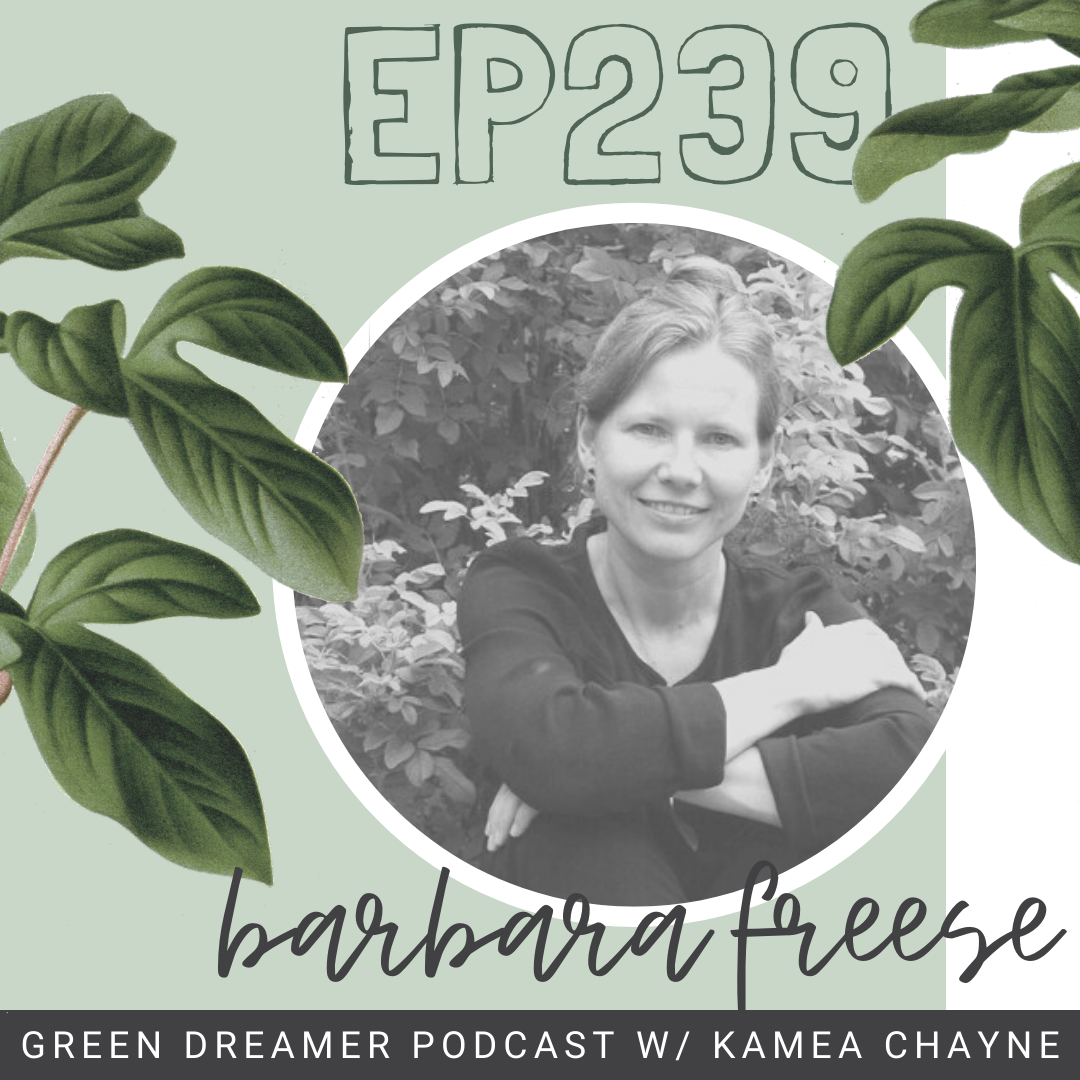Barbara Freese: Examining corporate denial from the slave trade to climate change (ep239)
Barbara Freese is an environmental attorney, former Minnesota assistant attorney general, and author of several books including her latest, Industrial-Strength Denial: Eight Stories of Corporations Defending the Indefensible, from the Slave Trade to Climate Change.
In this podcast episode, Barbara sheds light on what we can learn from looking at the various past case studies of corporate denial; how we can combat the persistent and widespread effects of corporate denial that percolate through our society to cause continued division and confusion; and more.
To start, get a glimpse below into the conversation between Barbara and Green Dreamer Podcast's host, Kamea Chayne.
Musical feature: Trust The Sun by This is Us by Girl Pow-R
“You can get to the point where an industry itself can abandon their denial, but the barriers they’ve erected over the years are still there—both political barriers and social barriers.”
If you feel inspired by this episode, please consider donating a gift of support of any amount today!
This is a conversation on Green Dreamer with Kamea Chayne, a podcast and multimedia journal illuminating our paths towards ecological balance, intersectional sustainability, and true abundance and wellness for all. This preview has been edited for clarity. Subscribe to Green Dreamer Podcast on Apple Podcasts, Spotify, Stitcher, or any podcast app to stay informed and updated on our latest episodes.
On questioning corporate denial as a phenomenon:
"Once I started thinking of climate denial as a social phenomenon and not just as some defect in these individuals' perspectives on the world, then I started thinking, ‘Where has this social phenomenon taken humanity in the past? What have other industries done? How have they responded to evidence that they're causing harm? What exactly did they say? What impact did they have? And ultimately, how did society get past that—if they did?’
So I went back to look at all of these different industries and ended up picking eight different industries that I thought were particularly epic in revealing stories about corporate denial."
On what makes climate change denial unique:
"One thing that's different about climate change denial is that it has spread so far beyond the fossil fuel industry.
It clearly started out there, and I had one of the earliest experiences with that in terms of confronting the coal industry in the 1990s. At that point, it was pretty much an industry-led phenomenon.
But then we saw it spread in society—particularly in the political right until it took over the Republican party. And now we see it in the White House. That is not something you saw with other kinds of denial."
On the long-lasting impacts of corporate-driven climate change denial:
"You can get to the point where an industry itself can have abandoned their denial but the barriers they've erected over the years are still there.
For example, most of the major oil companies right now don't deny that when you burn their product, you're putting greenhouse gases into the atmosphere. They don't deny those gases are warming the planet nor that it's critical we take action to do something about it.
Many of them will now say that they do support a price on carbon or that they support the Paris Agreement to dramatically reduce our emissions.
But that doesn't really change how they are remaining very eager to further exploit new oil fields and build pipelines and sell their product. And it also doesn't mean that we have the laws in place that we need, because the other barriers that they've helped erect over the decades are still there—both political barriers and social barriers."
Final words of wisdom:
“Remember that with social change, you can be working on something for years and it feels like nothing's changing. But then you reach a tipping point, and things change very quickly.
That's not a reason to relax; it's a reason to keep pushing. Change can happen very quickly!”
Podcast Sponsor:
Arbor Teas is a small, family-owned business based in Ann Arbor, Michigan with a big focus on sustainability. The company only sources loose leaf and organic certified teas, packages all its teas in backyard compostable materials, uses solar power in its operations, and offsets all of its emissions with CarbonFund. We’re grateful for our sponsors making our show possible and invite you to shop organic teas from Arbor Teas.

